Shreoshi Sengupta, PhD
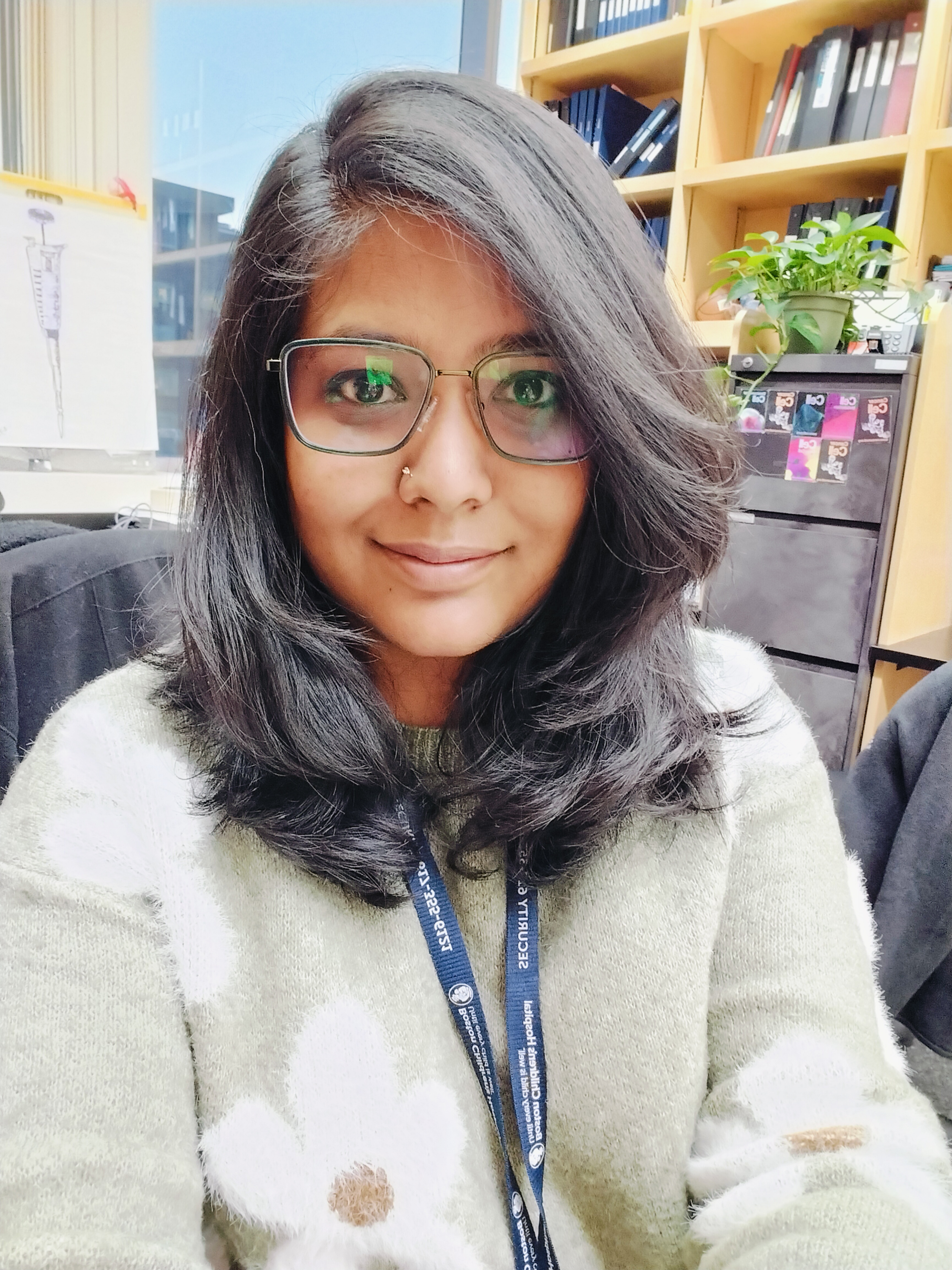
Studies have shown that lung tumors are sustained through the formation of new blood vessels from pre-existing ones in a process called angiogenesis. Moreover, tumor cells secrete signaling proteins that help them communicate with each other and evade immune detection. However, most of these studies have been on late-stage lung tumors; our understanding of cell-cell interactions in the tumor environment during lung cancer initiation and early stages remains poor. Dr. Sengupta [Deborah J. Coleman Fellow] plans to identify the gene expression patterns in tumor cells, endothelial cells (blood-vessel-forming cells), and immune cells over time to understand how they engage in this cellular crosstalk, promoting tumorigenesis. She also plans to examine cell-cell interactions in early-stage lung cancer using organoids, or artificially grown miniature organs. This line of investigation will help understand the mechanisms underlying tumor initiation and lead to novel biomarkers that can help detect lung cancers earlier. The findings will also help identify novel therapeutic targets that can be inhibited to improve patient responses and survival. Dr. Sengupta received her PhD from Indian Institute of Science, Bangalore and her MS and BS from University of Calcutta, Kolkata.
Saket Rahul Bagde, PhD
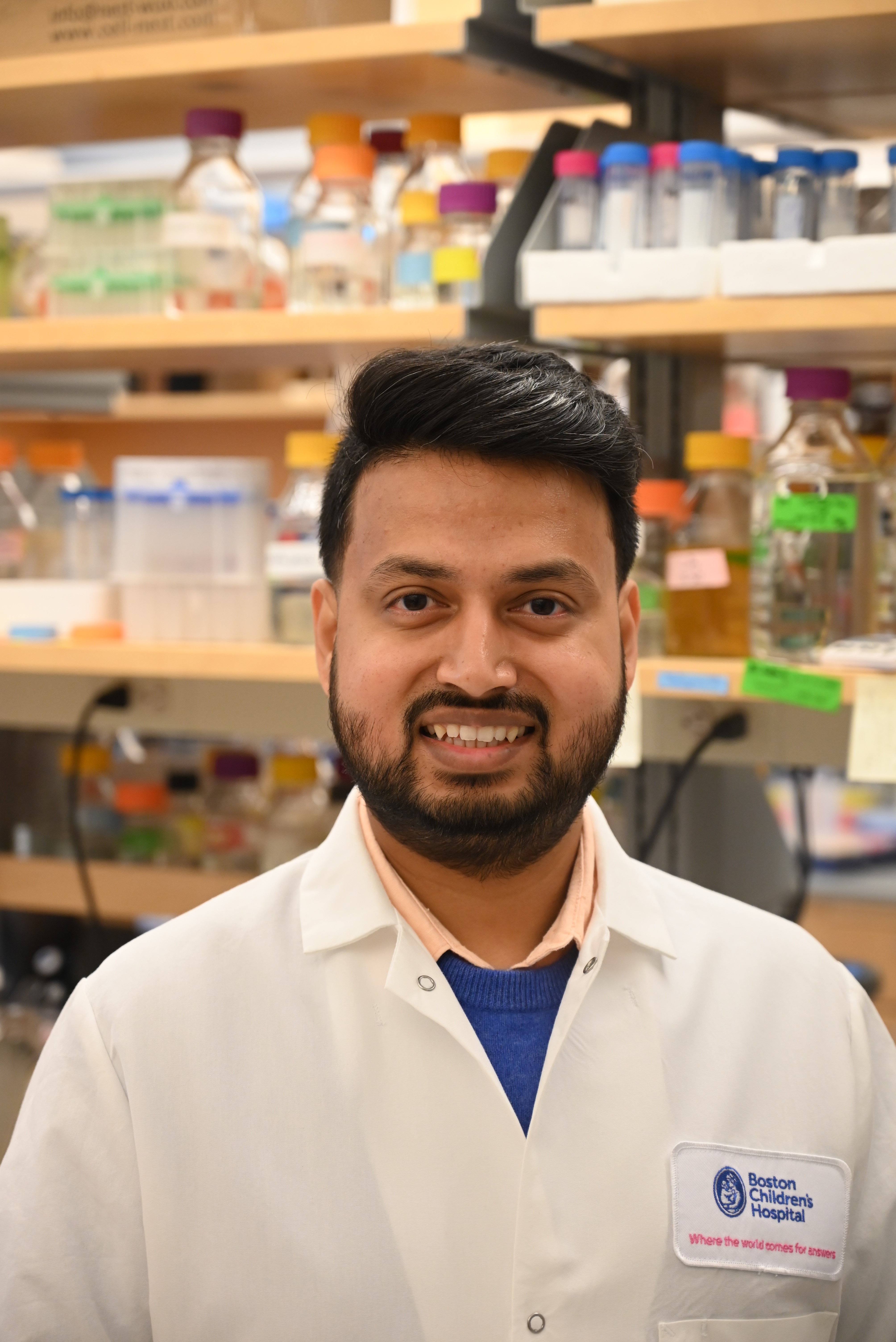
Most cancers develop in the epithelial tissue, which includes the skin and internal organ linings. Hemidesmosomes (HDs) are adhesive structures that anchor epithelial cells to the underlying base layer and maintain tissue integrity. While HD disassembly occurs normally during wound healing, tumor cells can exploit this process to detach and spread to other parts of the body. Dr. Bagde is studying how HD components interlock like Lego blocks to form stable HDs in healthy tissues and how they disassemble in cancerous tissues. To investigate this phenomenon, Dr. Bagde plans to develop organoids—self-organizing mini-organs grown in a petri dish to study disease progression. By creating simple base layers that simulate the supportive properties of the native organ base layer, he plans to promote the growth of both normal and cancerous organoids. This work has the potential to support the development of personalized cancer therapies based on patient-derived tumor samples. Dr. Bagde received his PhD from Cornell University, Ithaca and his MS and BS from the Indian Institute of Science Education and Research, Pune.
Rodrigo Gier, PhD
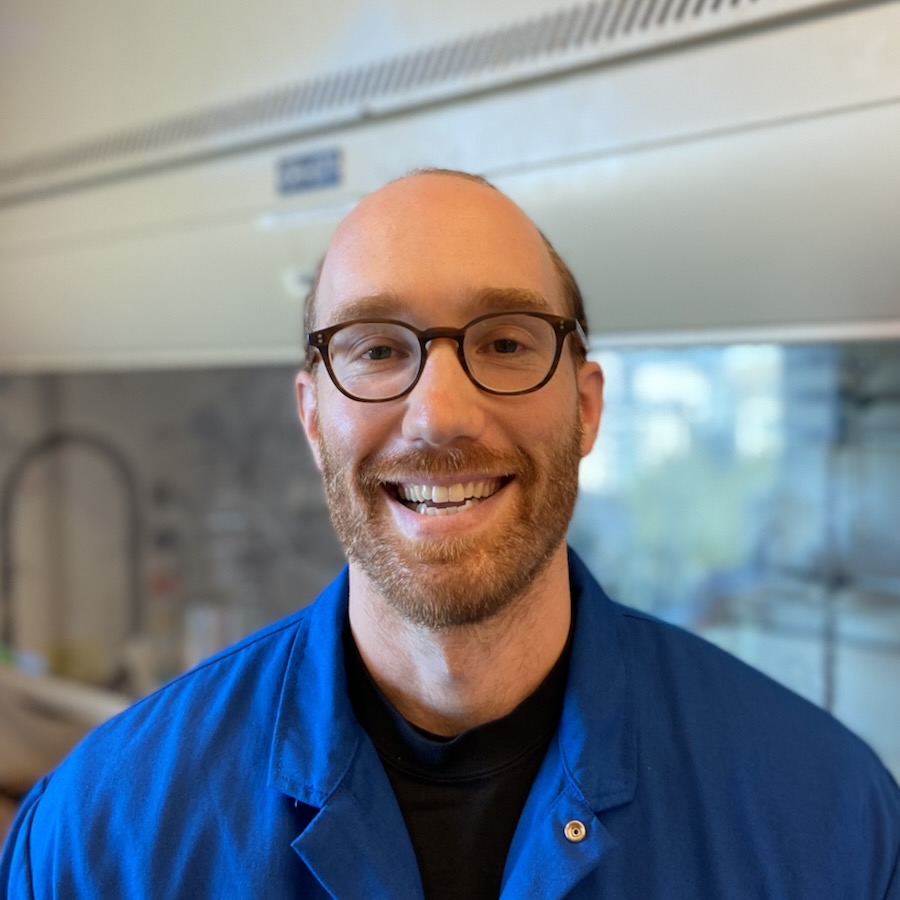
Drug therapies that selectively target proteins that drive the growth of tumor cells are rapidly becoming the standard of care for many cancers. However, tumors are often able to evade inhibition by targeted anti-cancer drugs by activating other proteins, leading to drug resistance. Dr. Gier [HHMI Fellow] is developing a new therapeutic approach that repurposes existing drugs to release highly toxic cargoes, known as payloads, that aggregate in drug-resistant cancer cells and kill them. As a general platform, it is applicable to a wide range of solid and liquid cancers. Dr. Gier received his PhD from University of Pennsylvania, Philadelphia and his BA from Swarthmore College, Swarthmore.
Laura Crowley, PhD
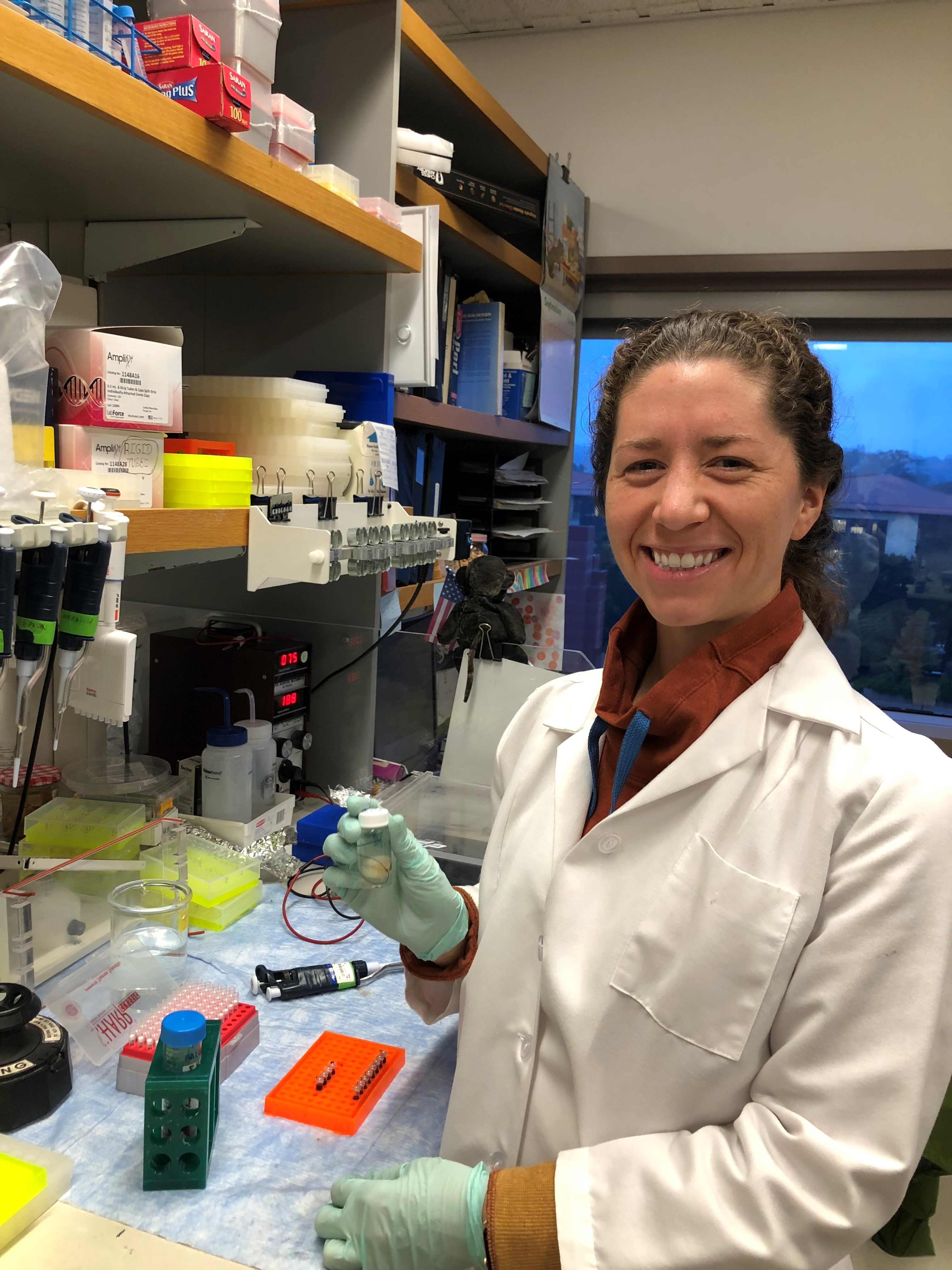
Fibroblasts are one of the earliest known cell types and they contribute to many of the most burdensome lung diseases, including cancers, fibrosis, and emphysema; however, they are surprisingly poorly understood. Dr. Crowley [HHMI Fellow] will examine the different types of fibroblasts in the mouse lung to determine where they come from and how they function normally, as well as how they change with injury and disease. This will establish an important baseline for how these cells function in mice and also provide critical, long-term insights into how these cells may function in humans, where lung diseases are very difficult to treat and are among the leading causes of mortality worldwide. Though her work will directly analyze the fibroblasts and microenvironment around lung tumors, her findings could translate to many other solid tumor contexts. Dr. Crowley received her PhD from Columbia University, New York and her BA from Colby College, Waterville.
Pu Zheng, PhD

Dr. Zheng [Fayez Sarofim Fellow] is dedicated to the development of technologies for studying tumor evolution within their native contexts. Understanding the complex processes of cancer growth and progression requires a deep exploration of the dynamic interactions between tumor cells and the tumor microenvironment. “Spatial-omics” technologies are powerful tools that offer direct visualization of cells and their interactions in natural contexts, enabling systematic investigation of these intricate processes. Dr. Zheng aims to develop novel spatial-omics technologies that combine imaging and gene sequencing approaches to uncover the mechanisms underlying the spatially distinguished features of tumor evolution. Dr. Zheng received his PhD from Harvard University, Cambridge and his BS from Peking University, Beijing.
Fyza Y. Shaikh, MD, PhD
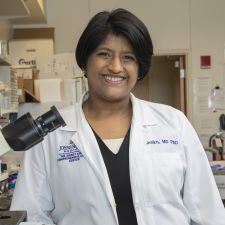
Immunotherapy has significantly changed how lung cancer and melanoma are treated. Unfortunately, only a small percentage of patients experience long-lasting responses. Gut bacteria have emerged as a potential predictor of how patients will respond to immunotherapy and may even be adjusted to enhance the effect of immunotherapy. Dr. Shaikh aims to identify features of the gut microbiome that correlate with immunotherapy responses. She will focus on both individual bacteria as they change over the course of treatment and the metabolites made by the entire bacterial community in the colon. The goal of this project, since gut bacteria can be modified, is to develop microbiome-based treatments to be used in combination with immunotherapy to improve response rates or overcome immunotherapy resistance for patients.
Xiuning Le, MD, PhD

Mutations in the EGFR gene were identified as the first targetable mutations in lung cancer about two decades ago. Since then, multiple targeted therapies have been approved and prolonged many lives. However, about 15% of EGFR mutations are atypical and do not have a current approved targeted therapy. Dr. Le is leading multiple clinical trials to address this unmet need. With new treatments potentially entering the clinic, new mechanisms of treatment resistance will likely evolve. Dr. Le aims to comprehensively characterize resistance mechanisms and compare resistance predisposition across different types of EGFR-linked lung cancers. She will leverage cutting-edge techniques to determine the mutations at single-cell level and develop rational therapeutic strategies to overcome resistance. This project has the potential not only to bring new FDA-approved treatments to patients but also establish clinical strategies to predict and target major resistance mechanisms.
Tadashi Manabe, MD, PhD
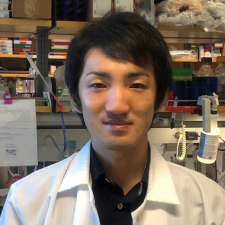
Lung cancer remains the leading cause of cancer mortality. Substantial breakthrough discoveries, including the identification of lung cancer-specific genetic drivers (e.g., EGFR mutations, EML4-ALK fusion genes) and the development of molecular inhibitors of these pathogenic factors, have improved outcomes for patients with advanced-stage lung cancer. However, lung cancer cells eventually acquire resistance to these molecular inhibitors, resulting in progressive disease. Dr. Manabe’s [Connie and Bob Lurie Fellow] research focuses on protein compounds formed by the self-assembly of oncogenic fusion proteins such as EML4-ALK. These compounds initiate a signaling pathway that causes abnormal cell proliferation in cancer. Dr. Manabe will explore the newly discovered structures of signaling proteins with the goal of developing molecular therapies that enhance precision medicine strategies and improve the control of lung cancer. Dr. Manabe received both his MD and PhD from Keio University School of Medicine.
Manuel Osorio Valeriano, PhD
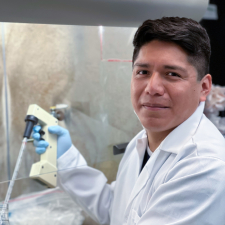
Human cells compact their vast genomes into the small confines of the nucleus by wrapping their DNA into a highly complex structure called chromatin. Packaging DNA into chromatin, however, affects all nucleic acid-transacting machines (e.g., transcription factors) that need to access the genomic information stored in the DNA. NuRD is a large multi-subunit protein complex that plays a major role in making chromatin either accessible or inaccessible. Dysregulation of NuRD and aberrant targeting of the complex can result in the emergence of several types of cancers, including breast, liver, lung, blood, and prostate cancers. Dr. Osorio Valeriano’s [Philip O'Bryan Montgomery, Jr., MD, Fellow] work will reveal mechanistic aspects of NuRD-mediated chromatin regulation and pave the way for the development of novel therapeutic approaches that target cancers more effectively. Dr. Osorio Valeriano received his PhD from Philipps University and his MSc and BSc from the National Autonomous University of Mexico.
Dian Yang, PhD
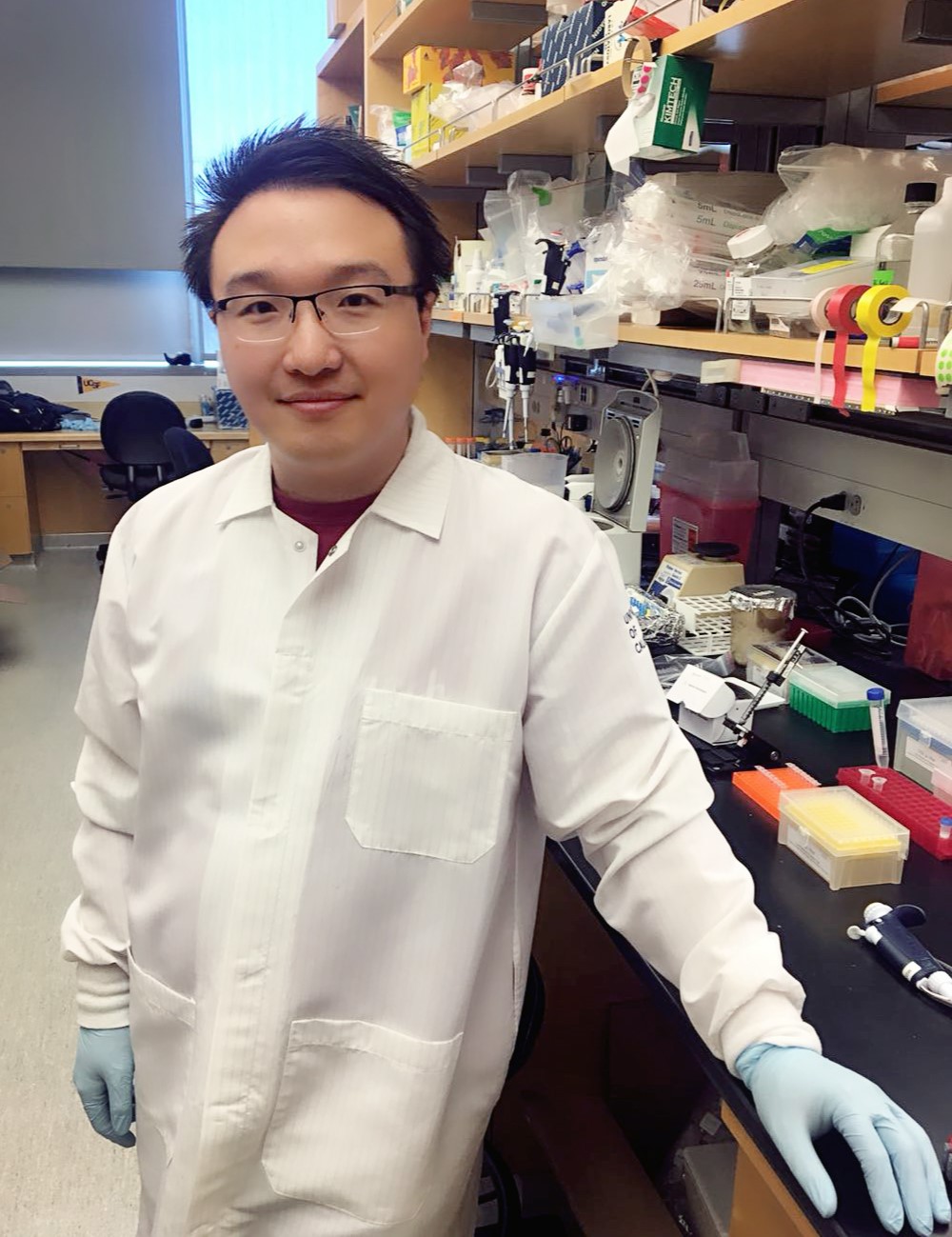
Dr. Yang is examining tumor heterogeneity in search of new diagnostic markers and potential therapeutic targets. A tumor consists of not only cancer cells, but also immune cells, fibroblasts, and other stromal components. The diverse cell types and cell states that form the tumor microenvironment (TME) may promote disease progression and lead to therapeutic resistance. Dr. Yang aims to uncover fundamental principles of tumor evolution by generating a comprehensive and quantitative “traffic map” of cancer cell state transitions and fitness changes during tumor development. Understanding this fundamental question has the potential to reveal key biomarkers that predict treatment response and actionable targets that drive resistance, thereby opening up new possibilities for long-lasting, multilayered tumor control.
